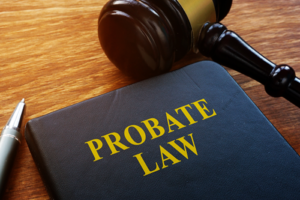While not every estate requires the services of a probate lawyer, having an experienced attorney on one’s side may be a huge benefit to an executor or administrator — but how much will it cost and who will pay?

One of the most often asked probate inquiries is concerning probate lawyer costs and how much probate is going to cost. Because the answer is dependent on a number of circumstances, it’s vital to grasp the fundamentals of the procedure in order to properly anticipate probate costs.
Below is a brief tutorial on probate law and probate attorneys, including considerations of how the probate process works, how long it takes, possible expenses, and how probate may be avoided entirely.
What Exactly Is Probate?
Probate is the court-supervised process of managing a dead person’s estate, which includes settling debts and transferring property to heirs. The estate is managed by an executor identified in the dead person’s will, or by an administrator appointed by the probate court if there was no will. This individual is often referred to as a “personal representative.”
The following are the fundamental stages in probate:
(1) Submitting a petition to open the estate and schedule a hearing to appoint a personal representative;
(2) Notifying heirs and beneficiaries of the hearing;
(3) Conducting an estate inventory (compiling all assets and obligations);
(4) Notifying all estate creditors;
(5) Resolving debts and dispersing estate assets to beneficiaries;
(6) Execution of the estate.
What Exactly Is A Probate Lawyer?
A probate lawyer is a licenced attorney who focuses in probate cases. Probate lawyer fees, also known as estate lawyer fees, are payments paid directly to the attorney for legal services; they are not the same as “probate expenses,” which might include the following:
Personal representative commissions
Court costs
Fees for publishing notices
Accounting charges
Fees for appraisals
Fees for recording deeds
The estate, not the executor or administrator, pays the probate lawyer’s fees.
Many probate attorneys charge an hourly cost, which varies by area as well as the attorney’s level of specialisation and/or experience (the higher the rate, the more specialised and/or experienced the attorney).
Some probate lawyers charge a flat fee, which means they quote a cost for processing the case.
Other probate attorneys will ask for a portion of the estate’s gross (rather than net) worth. Some jurisdictions, like as California, control probate attorney’s fees by laws, prohibiting them from charging more than a particular percentage of the gross estate value. Nonetheless, the fees may look exorbitant to certain customers (particularly those with bigger estates) since the percentage is based on the gross valuation of the estate rather than what it is worth minus obligations such as mortgages on property.
Clients should obtain a price agreement in writing, regardless of the kind of fee arrangement, to be completely certain of the payment structure and services provided.
Table of Contents
How Long Does the Probate Process Take?
Probating a will may take several months to more than a year, however most estates are concluded within a year. Many factors influence how long the process takes, including whether the will was straightforward and uncontested, as well as how well organised the decedent was, i.e., whether the estate was “in order” with a will and other important legal documents such as deeds and titles at the time of his or her death.
Another element that might impact how long the probate procedure takes is the valuation of the estate. Logically, the longer the probate procedure, the more assets and/or debts an estate possesses. Furthermore, if an estate has a large enough worth to be taxed, the procedure might be prolonged since the Internal Revenue Service (IRS) gets involved.
An estate with fewer assets and/or a lower value, on the other hand, may benefit from the streamlined probate procedures offered in certain states.
What Is the Cost of Probate?
Probate fees vary widely from area to region, although they typically range from 3% to 7% of the estate’s worth. They may, however, go considerably higher and tend to do so as the value of a land grows. Indeed, the probate expenses are likely to be higher the greater the value of the estate.
Is it possible to avoid probate in the case of an estate?
Yes, with proper estate planning, an estate may avoid probate and, as a result, probate expenses. The following are examples of common estate planning approaches for avoiding probate:
Joint ownership of property, since the property flows straight to the other owner without the need for probate;
Direct designation of intended beneficiaries on accounts such as life insurance, retirement, bank (“pay-on-death” or POD), and investment (“transfer-on-death” or TOD), since the account goes immediately outside of probate;
The establishment of a living trust, since property held in the trust is given to the designated recipient without the need for probate.
While engaging a probate lawyer is not essential throughout the procedure, if you are the administrator or executor of an estate, you may wish to consult with an attorney for assistance.
